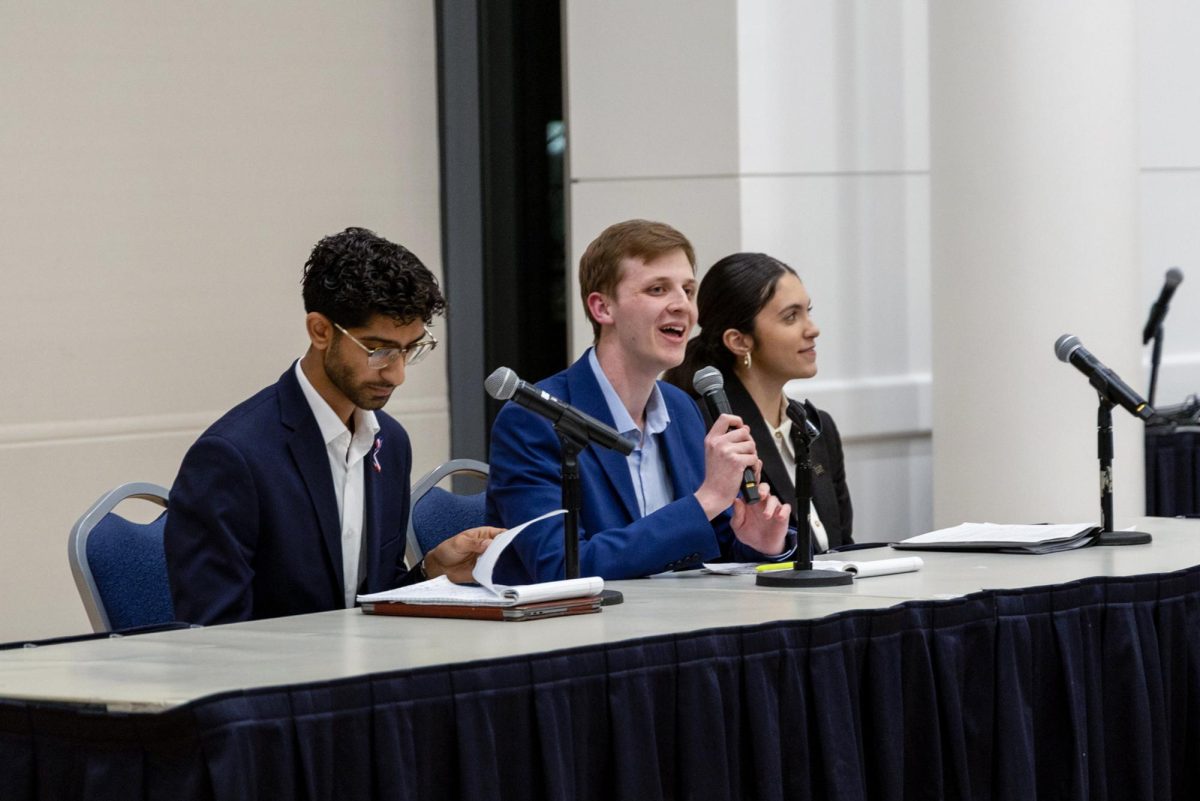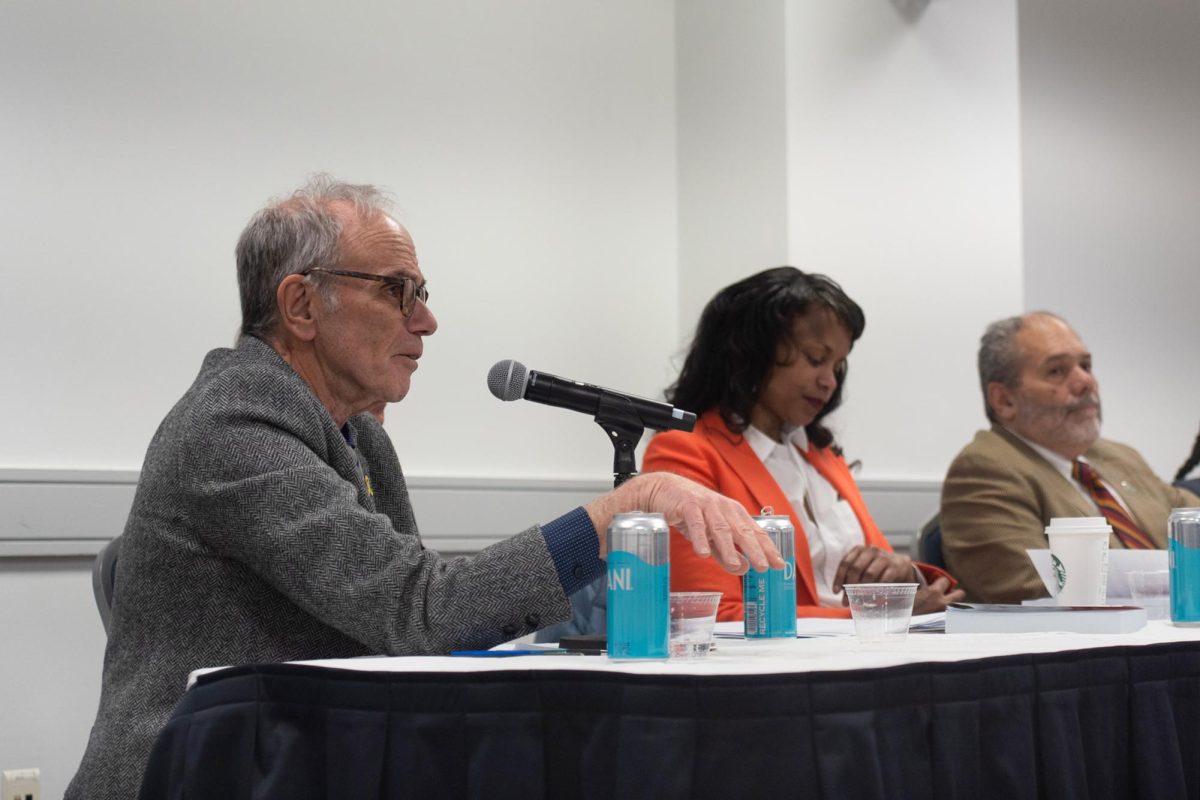Law experts are paying very close attention the recording industry’s legal battle against 19 anonymous GW students, and many claim that a decision for the students could have national significance.
The GW case garnered much attention after one of the anonymous students attempted to annul a subpoena revealing his name. Few of the individuals targeted by the industry have fought back in court, worried that doing so would increase damages. If the student is successful, it could set a precedent for collegians across the country.
“The student I’m representing is fighting the battle for all the students,” said Steve Robertson, the attorney for the anonymous student.
He added, “If we succeed it will definitely put a hitch in their style.”
In September, the Recording Industry Associates of America filed a complaint against a group of anonymous IP addresses belonging to GW students. The RIAA is a group of record companies that are responsible for 90 percent of all music produced. In order to continue the case, they need the University to reveal the names of the students.
Last Thursday, the RIAA filed a motion in support of its subpoena, claiming the student has no base for challenging it. The University has not challenged or supported the subpoena.
“(GW) said ‘We will just tell the students and if they want to do something, fine,'” Robertson said. “‘If they don’t that’s fine too, we’ll just turn over the names. We don’t have a dog in this fight.'”
Robertson said the GW case, in addition to cases at William and Mary and University of North Carolina are likely to have an impact on the East Coast. On the West Coast, there is also a major development at the University of Oregon, where the school – rather than students – fought the subpoena.
Ray Beckerman, an intellectual property expert who maintains the blog “Recording Industry vs. the People,” also feels the GW case will have national significance.
“If (the judge) issues a decision which recognizes the flaws in the RIAA’s ‘ex parte’ evidence, I predict that it will have a tremendous impact nationwide,” Beckerman said.
Beckerman added if GW’s subpoena was dismissed, it would impact the RIAA’s entire campaign, both against college students and the general population.
An RIAA spokesperson said her organization is unfazed by the GW student opposition.
“We continue – and will continue – to bring legal action against individuals engaging in illegal music file-trafficking via college networks,” said Cara Duckworth, a spokesperson for the RIAA.
Duckworth also said legal action is not the first choice of the RIAA but despite education campaigns, illegal downloads continue to be a problem.
Several months ago, the first jury trial regarding illegal downloading finished in favor of the RIAA. The defendant, a mother from Minnesota, was asked to pay $9,250 for each of the 24 songs listed in the suit.
“There is no excuse to getting music illegally,” Duckworth said. “The legal marketplace deserves the chance to succeed.”






